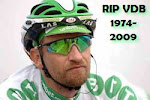 From the New York Times article written by Juliet Macur:
From the New York Times article written by Juliet Macur:Three top riders were kicked out of the Tour this year because of failed drug tests or suspicions of avoiding anti-doping officials. Those transgressions may seem puzzling, considering they were brought to light at cycling's most scrutinized event, where both urine and blood are screened for performance-enhancing drugs. The cheaters have not been scared off.
The riders who dope are taking a calculated risk, and the odds may be in their favor. Only the race leader, the stage winner and two or three riders selected at random are tested every stage of the Tour, leaving most of the field of about 200 untested.
Daniel Gilbert, a psychology professor at Harvard University, said the recent failed drug tests should lead one to believe that there is much more cheating in cycling than is known. The cyclists must know something that the general public does not: that more riders - perhaps many more - are able to avoid detection than are caught.
"These guys may be able to get jobs as economists," he said. "They may be thinking very logically about their decisions."
"They may be immoral, but they are not necessarily stupid," Gilbert said. "Why would they put everything on the line for such a small possibility that they would get away with this? Well, who said the possibility was small? It might not be small at all."“When a rider tests positive, it’s like Stalinist Russia,” Joe Papp said. “You are taken off the Web site, your paycheck stops coming, the team just washes its hands of you. The team goes on, and there is no motivation, outside their own morality and ethics, to stamp out doping. But they still expect you to keep quiet about everything.”
International Herald Tribune Version HERE.





No comments:
Post a Comment
Pappillon welcomes your comments and encourages your participation. Comments may, however, be moderated.